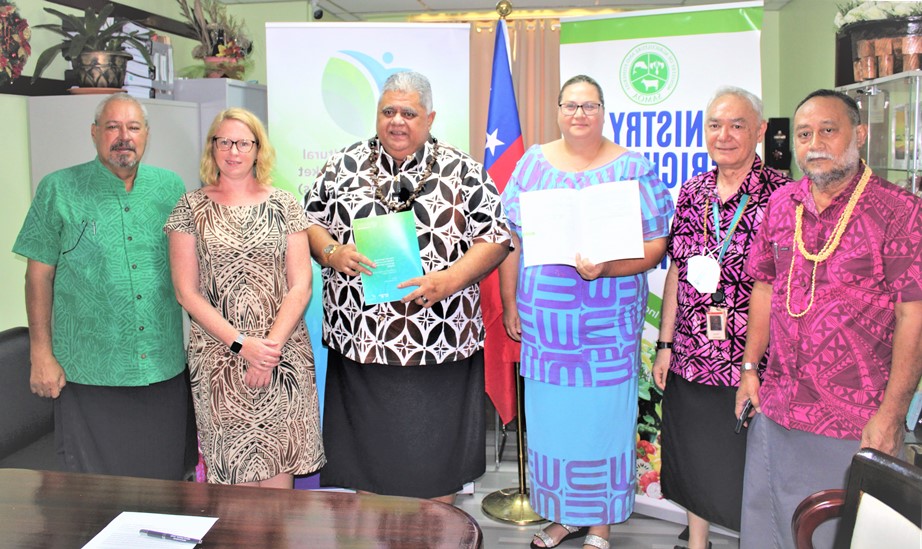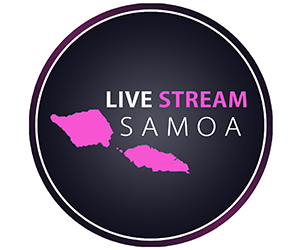Agriculture & Fisheries
MAF signs new partnership to boost taro exports

APIA, SAMOA – 16 FEBRUARY 2023: Samoa’s Ministry of Agriculture and Fisheries (MAF) has renewed its long-standing partnership with the Pacific Horticultural and Agricultural Market Access Plus Program (PHAMA Plus) to improve farmers’ access to planting materials by establishing taro nurseries.
PHAMA Plus is supported by the Australian and New Zealand governments, and has been working with MAF since 2011 to grow Samoa’s export industry. Under a new Memorandum of Understanding, MAF and PHAMA Plus will work together to improve the availability and use of high-quality taro planting material known as tiapula.
In signing the MOU on Tuesday thus week, the Minister of Agriculture and Fisheries, Laaulialemalietoa Leuatea Polataivao Fosi Schmidt said this partnership will contribute to an increase in the quality and quantity of exportable taro in Samoa.
“This intervention will support MAF’s efforts to achieve its expected strategic outcomes for the agriculture sector. Our Government has recently approved the establishment of our Samoa Export Authority, to drive our export efforts for our agricultural commodities, especially to New Zealand and Australia, where we have a lot of our people residing,” said the Minister.
“The Samoan Government has also approved my request to establish a packhouse in Salelologa, Savaii, to support our farmers and exporters in Savaii, with their efforts to increase the value of our exports. This support from PHAMA Plus will significantly contribute towards our efforts, especially on the production side.”

The Minister of Agriculture & Fisheries Laaulialemalietoa signing the partnership agreement witnessed by High Commissioners HE Emily Luck of Australia and HE Trevor Matheson of New Zealand, Tilafono David Hunter and Taulapapa Maria Leota.
Laauli also acknowledged technical assistance provided by PHAMA Plus to commercialise the Hot Water Treatment Plant to manage surface quarantine pests on fresh taro and resume exports to Australia.
“On behalf of our Government and my Ministry, I would like to register my great appreciation to the Governments of Australia and New Zealand, which are co-funding the PHAMA Plus programme, and I look forward to our continued collaboration, to assist us with our export efforts,” he added.
The renewed partnership seeks to establish four taro nurseries at MAF-Nuu Crops Station, MAF Salelologa Station, Tunaula Green Farmers (Taro Growers’ Group in Upolu) and Faleupolu o Tofiga (Taro Growers’ Group in Savaii).
MAF CEO, Tilafono David Hunter said the two farmer groups from the two islands were already registered associations that have secured land for the program.
“MAFs long term relationship with farmers based on a participatory approach in the evaluation of progenies from the breeding program will be strengthened through this public-private sector link with the Growers’ Groups for both islands,” said Tilafono Hunter.
According to PHAMA Plus Root Crops Market Study (2021), there are significant barriers facing women, youth, and persons with disabilities (PWD) in accessing employment in the value chains or starting their own businesses.
“This intervention will seek to promote gender, disability and social inclusion in the development of taro nurseries through utilising its future business model to create an income earning opportunity. It will also showcase some climate change mitigation elements which are essential at the nursery level, and highlighting the key concepts for adoption by farmers at their farms,” reiterated PHAMA Plus Country Manager Samoa, Asuao Kirifi Pouono.
Root crops remain a priority sector for MAF and PHAMA Plus. The opportunity for Samoa root crops is supported by the increasing demand from the Samoan diaspora in New Zealand, USA and Australia, and a parallel commitment by Samoan Government and farmers to revive its taro industry.

























